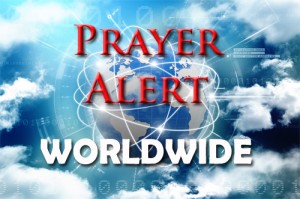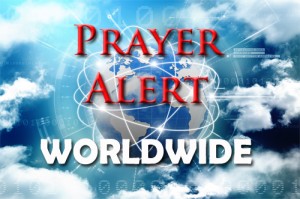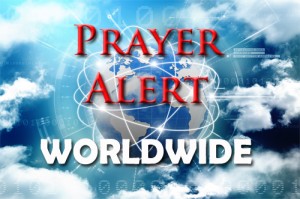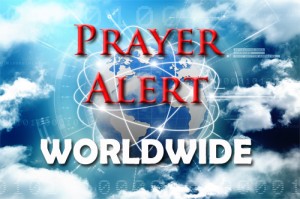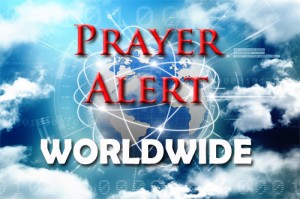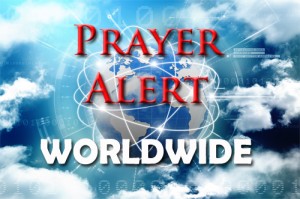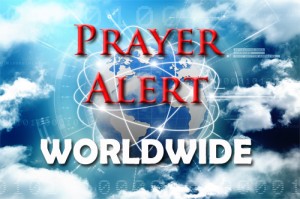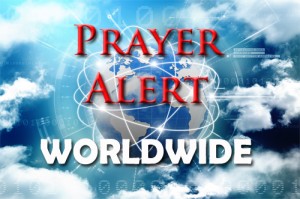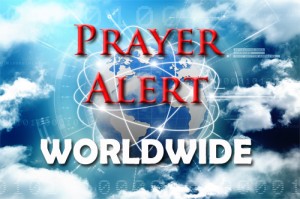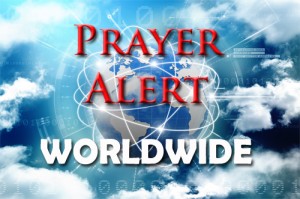Displaying items by tag: Asia
Turkey: critical election on 24 June
In March we prayed for Turkey to come to a turning point because President Erdogan's rise to power was returning Turkey to its Ottoman and Islamic heritage through authoritarianism, consolidation of power, increased support of radical Islam, reintroduction of Islamic cultural practices, and the dismissal of thousands of government workers, military, and journalists. Erdogan is a ruler trying to maintain the facade of democratic legitimacy by calling an election which he will probably win. It will bring in a new presidential system that drastically increases the powers of the president, while reducing the role of the parliament. Erdogan's Turkish nationalism stifles freedom of expression. Christian believers are treated as traitors to both Islam and the Turkish identity. Under the existing martial law, Erdogan has purged Turkey of political opponents and dissenters and has jailed many journalists. Pray for public sentiment to recognise the importance of religious and other freedoms. (Joshua 24:22)
India: pollution
India's capital Delhi is battling high pollution levels and extreme temperatures due to an unusual dust haze covering the city. Many people have breathing problems and say the city has become an unliveable place. The state government has banned all construction, and the fire brigade is sprinkling water across the city. People are advised to stay indoors as much as possible. Fourteen Indian cities are among the world's most polluted, according to World Health Organisation. The dust is a carrier of PM2.5 - tiny but deadly air particles, which can increase the likelihood of respiratory and cardiovascular diseases. Delhi's air pollution is triggering a health crisis. Many residents are saying, ‘Right to clean air should be a part of right to life as enshrined in the constitution’, and ‘It's high time to bring in electric vehicles’. Others assert that Delhi needs a forest buffer zone, which would not be very expensive to implement.
Afghanistan: ceasefire
On 7 June, president Ashraf Ghani announced a ceasefire with Taliban insurgents until 20 June, coinciding with the end of Ramadan, but said fighting against IS will continue. He added that the ceasefire is an opportunity for the Taliban to realise that their violent campaign is not winning hearts and minds but further alienating people. He recently offered to recognise the Taliban as a legitimate political group, in a proposed political process that he said could lead to ending more than sixteen years of war. At that time he proposed a ceasefire, releasing prisoners, new elections involving the militants, and a constitutional review in a pact with the Taliban, to end a conflict that last year alone killed or wounded over 10,000 Afghan civilians.
India: beating plastic pollution
Nestled in the Himalayas in north-eastern India, Sikkim has been leading a green revolution. Despite being small and isolated, with its people living in extremely tough mountainous terrain, it became the first Indian state to ban disposable plastic bags (1998) and is among the first to target single-use plastic bottles. In 2016 Sikkim banned packaged drinking water in government offices and events, and banned the use of disposable plates and cutlery to cut down toxic plastic and refuse problems. Pray for more governments to be active in promoting environmental programmes that end the global use of single-use plastic. Pray for more research and development into alternative materials to be used to manufacture food packaging, carrier bags, plastic pipes, electrical cable insulation, and artificial limbs. Pray for more innovative recycling and composting programmes, and thank God for the work of Christian environmental organisations such as A Rocha.
Myanmar: ‘genocidal campaign’ against Christians
The Myanmar army is waging a ‘genocidal campaign’ against Kachin Christians, using the same tactics that forced nearly a million Rohingya to flee the country. ‘What we found in this forgotten part of the world was worrying evidence of a second genocidal campaign, this time against the Kachin’, stated a Sky News correspondent on 4 June. Attacks on Kachin areas have increased substantially since January. The forces that spent months driving the Rohingya Muslim ethnic minority out of western Myanmar are now deployed in the north and applying similar tactics, including helicopters, heavy artillery, and burning villages to the ground. The most recent attacks have displaced 10,000 from the mainly-Christian Kachin ethnic minority. One mother of four told journalists, ‘The Burmese government is trying to carry out ethnic cleansing of the Kachin people. Whenever they see Kachin civilians they kill them. If they see a Kachin woman they will rape her, even a pregnant woman.'
North Korea: summit with USA
Kim Yong Chol, a top lieutenant of Kim Jong-Un, is meeting with US secretary of state Mike Pompeo in New York, in one of three sets of parallel talks aimed at salvaging a summit between Kim and Donald Trump. Lower-level officials have been meeting at the inter-Korean border and in Singapore for other pre-summit negotiations. South Korea's president said, ‘Kim Jong-un believes a face-to-face meeting with US President Donald Trump could put an end to the history of war between the two nations.’ Pray that this hope is realised. He also said that Kim had reaffirmed his commitment to ‘complete’ denuclearisation of the Korean peninsula when they had a surprise meeting at the demilitarised zone. Pray for Pyongyang and Washington to agree on a roadmap of talks that will resolve their differences.
India: new virus alert
With a rising death toll (15) and the deaths of a nurse and a soldier in Kolkata, panic about Nipah virus is spreading in Kerala. Half-informed WhatsApp messages about Nipah are making it hard for people to distinguish fact from fiction, but what is known is that it is fatal in 70% of cases and there is no vaccine. On 29 May health experts flew to Kerala to help contain the virus that the WHO lists alongside Ebola and Zika as a disease that could cause a global epidemic. Emergency measures have been imposed to curb its spread; dozens of patients have been quarantined since the outbreak was detected two weeks ago. Nipah spreads from bats or pigs to humans, with many strains capable of spreading from person to person. This increases the chances of a strain emerging that spreads rapidly among the densely populated communities and beyond. See
North Korea: summit cancelled
President Trump cited 'tremendous anger and open hostility' from North Korea as reasons for cancelling a landmark meeting with Kim Jong-un on 12 June in Singapore. In a letter to Kim he said, ‘It is inappropriate, at this time, to have this long-planned meeting. The world and North Korea have lost a tremendous opportunity for lasting peace and great prosperity and wealth. This missed opportunity is truly a sad moment in history.’ His announcement came two days after he hosted South Korean president Moon Jae-in in Washington for talks widely seen as a salvage effort to ensure the summit went ahead. A statement from Pyongyang referred to vice-president Mike Pence as a ‘political dummy’, and said it is just as ready to meet in a nuclear confrontation as at the negotiating table with the United States.
Iran: sanctions, Syria and uranium
Three world leaders outlined their opinions on Iran. The US secretary of state threatened to impose ‘the strongest sanctions in history’ if Iran doesn’t meet a list of demands, including abandoning involvement in Syria, Yemen, Lebanon and Afghanistan. President Putin said Iran and Hezbollah should leave Syria when the civil war ends; and Israel’s Netanyahu lauded Donald Trump for putting pressure on Iran to stop its intervention in Syria and end its uranium enrichment. An Iranian spokesman told Hezbollah’s Al-Manar TV, ‘No one will extract us from Syria. We will remain and keep supporting Syria so long as it needs our help. No one can force Iran to do anything’. Meanwhile please continue to pray for Nazanin Zaghari-Ratcliffe, a Christian, serving a five-year sentence allegedly for spying and now having new charges made against her. See
Israel: media encourage Hamas violence
Hamas said fifty of the people killed by Israeli forces on Gaza’s border recently were its fighters and named them online, including photographs and details of their ranks within the group. Yet the IDF’s response to the clashes was condemned worldwide. See If this was the first time the media caused Israel’s self-defence actions to kill civilians, they could be excused, but this is something that Hamas repeatedly does. Fathi Hamad of the Palestinian Legislative Council said, ‘For the Palestinian people, death has become an industry in which women stand out, and all the people who live in this land. Older people excel in this, as do mujahedeen and children. This is why we have made human shields for women, children, the elderly and mujahedeen, to challenge the Zionist bombing machine. It's like telling the Zionist enemy, “We want death as much as you do life”.’
